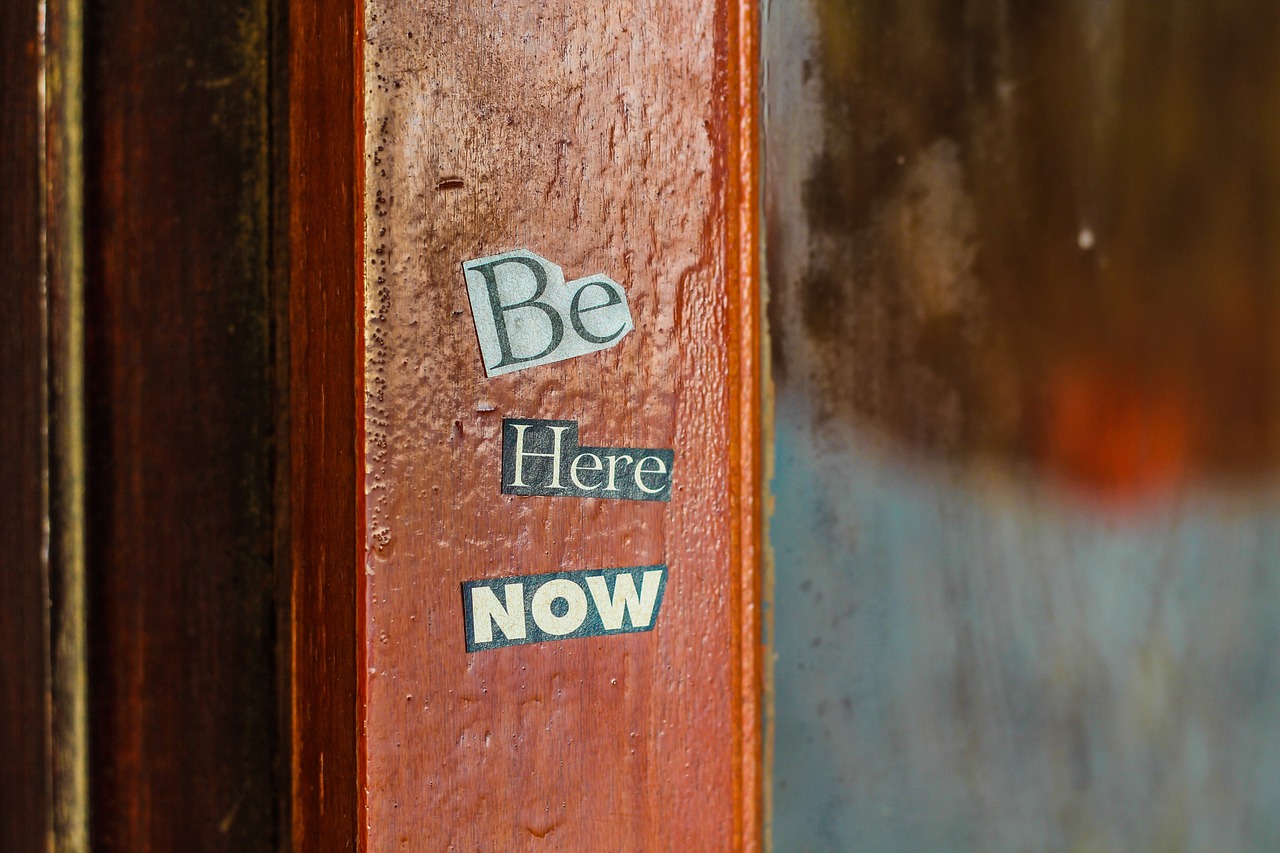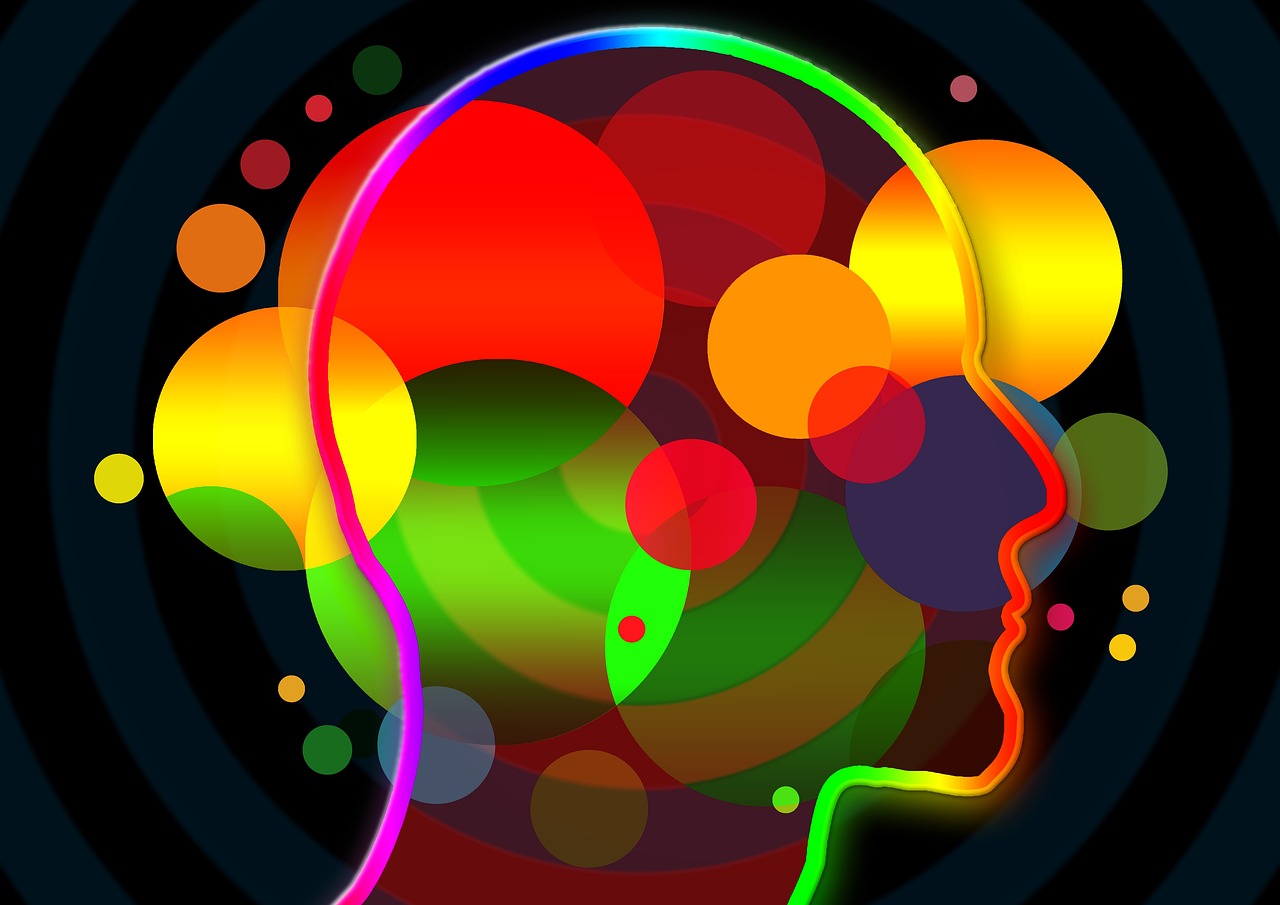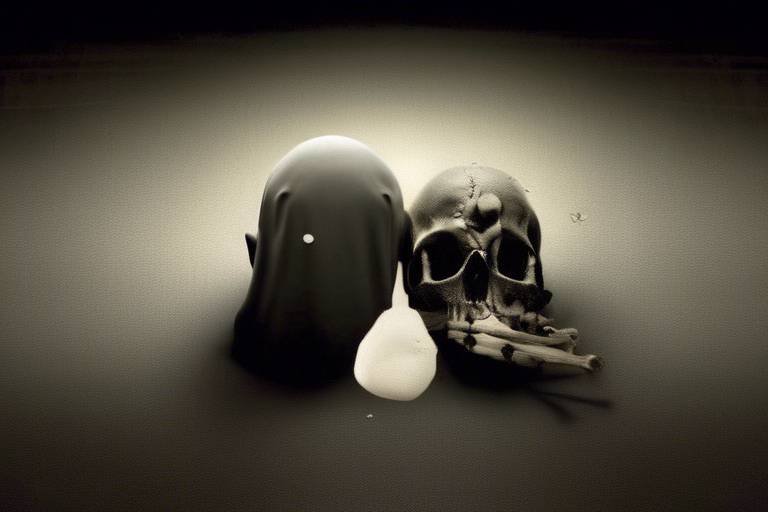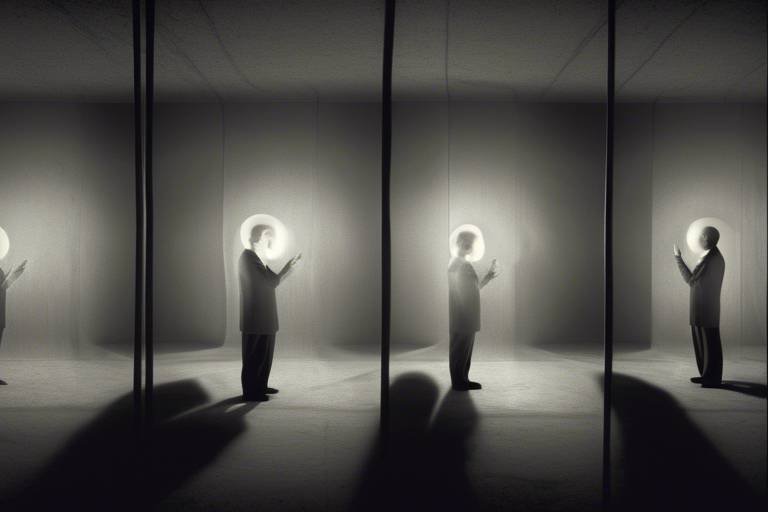Understanding the Conscious and Unconscious Mind
The human mind is a fascinating and intricate system that governs our thoughts, emotions, and behaviors. At the core of this system lies a dynamic interplay between the conscious and unconscious mind. Understanding these two aspects is essential for anyone interested in psychology, self-improvement, or even just the curious observer of human behavior. The conscious mind is like the tip of the iceberg, visible and aware, while the unconscious mind lurks beneath the surface, influencing us in ways we often don't recognize. This article will explore the definitions, functions, and impacts of both aspects, shedding light on how they shape our daily lives.
The conscious mind is where all the action happens. It's the part of our mind that is actively engaged in the present moment, where we process thoughts, make decisions, and solve problems. Imagine it as the pilot of an airplane, navigating through the skies of our daily experiences. The conscious mind allows us to focus on tasks, communicate with others, and reflect on our feelings. It is crucial for decision-making, enabling us to weigh options and choose a course of action. However, it is also limited by our immediate awareness and can only handle a small amount of information at a time. This limitation is why we often feel overwhelmed when faced with too many choices.
In stark contrast, the unconscious mind operates quietly in the background, influencing our emotions and behaviors without our awareness. Think of it as the engine room of a ship, powering everything beneath the surface while the captain steers above. The unconscious mind is a vast reservoir of memories, instincts, and repressed experiences that shape our actions and reactions. It holds onto past experiences and learned behaviors that can affect our present decision-making and emotional responses. While we may not always be aware of these influences, they play a significant role in our lives, often dictating our habits and preferences without us even realizing it.
Memory is a pivotal component of the unconscious mind. It stores past experiences that can profoundly affect our present behavior. When something triggers a memory, it can evoke emotions and reactions that we might not fully understand. For instance, a specific scent might remind you of a childhood moment, sparking feelings of nostalgia or even sadness. Understanding this connection between memory and behavior can help us navigate our emotional landscape and improve our decision-making processes. It's like having a map of our past that can guide us through the present.
Implicit memory refers to unconscious memories that influence our skills and behaviors, often without conscious awareness. These memories are like hidden scripts that guide our actions. For example, have you ever driven a car without consciously thinking about each step? That's implicit memory at work. These memories shape our habits and preferences in subtle ways, making them an essential part of our daily functioning.
On the other hand, explicit memory involves conscious recall of facts and events. This type of memory allows us to remember specific details, such as a friend’s birthday or a historical date. It contrasts sharply with implicit memory, highlighting the different ways our minds store and retrieve information. While explicit memory requires active engagement, implicit memory operates on autopilot, often guiding our behavior without us even realizing it.
Defense mechanisms are another fascinating aspect of the unconscious mind. These are unconscious strategies we use to protect ourselves from anxiety and emotional pain. They can distort reality, impacting how we perceive ourselves and our relationships with others. For instance, someone might use denial to refuse to accept a painful truth, or projection to attribute their own unwanted feelings onto someone else. Understanding these mechanisms can provide valuable insights into our behaviors and help us develop healthier coping strategies.
The interaction between the conscious and unconscious mind is complex and ever-evolving. They constantly influence each other, creating a dynamic relationship that shapes our thoughts and actions. By understanding this relationship, we can achieve greater self-awareness and personal growth. It's like tuning into a radio station; when we adjust the dial, we can hear different messages that can guide our lives in various directions.
Dreams serve as a fascinating bridge between the conscious and unconscious mind. They often reflect our deepest thoughts and desires, providing insight into our inner conflicts. Analyzing dreams can reveal hidden emotions and unresolved issues that affect our waking life. For example, a recurring dream about falling might indicate feelings of insecurity or loss of control. By paying attention to our dreams, we can unlock valuable insights about ourselves and our emotional state.
Various therapeutic approaches, such as psychoanalysis and cognitive-behavioral therapy, aim to bridge the gap between the conscious and unconscious mind. These methods promote healing and self-discovery through awareness and understanding. In therapy, individuals can explore their unconscious thoughts and feelings, leading to greater insight and personal growth. It's like shining a light into a dark room; once we illuminate our unconscious mind, we can understand and address the issues that have been hidden away.
- What is the main difference between the conscious and unconscious mind?
The conscious mind is responsible for our current thoughts and awareness, while the unconscious mind influences our emotions and behaviors without our realization. - How do memories affect our behavior?
Memories, especially those stored in the unconscious mind, can evoke emotions and influence our actions, even if we are not consciously aware of them. - Can we access our unconscious mind?
While direct access is challenging, techniques like dream analysis and therapy can help bring unconscious thoughts to the surface.

The Conscious Mind
The conscious mind is like the tip of an iceberg, visible and accessible, while the vast majority of our mental processes lie beneath the surface. It encompasses our current thoughts, perceptions, and awareness, acting as the command center for our daily lives. When you think about what to have for breakfast or decide which route to take to work, you're engaging your conscious mind. It plays a crucial role in decision-making and problem-solving, allowing us to navigate our day-to-day activities effectively.
Imagine your conscious mind as a spotlight that illuminates certain aspects of your life while leaving others in the shadows. This selective focus enables you to concentrate on tasks at hand, such as studying for an exam or engaging in a conversation with a friend. However, it also means that many underlying thoughts and feelings remain hidden, waiting to be explored. The conscious mind is responsible for rational thinking and logical reasoning, allowing us to analyze situations and make informed choices. But here's the kicker: while it feels like we’re in complete control, our conscious decisions can often be swayed by the deeper, hidden influences of our unconscious mind.
Consider the following functions of the conscious mind:
- Awareness: This involves recognizing and understanding our thoughts, feelings, and surroundings.
- Decision-Making: The conscious mind evaluates options and makes choices based on logic and reasoning.
- Problem-Solving: It helps us tackle challenges by analyzing information and generating solutions.
- Self-Regulation: The conscious mind allows us to control our impulses and behaviors, guiding us towards socially acceptable actions.
Interestingly, the conscious mind also has its limitations. It can only focus on a limited amount of information at any given time, which is why multitasking often leads to mistakes. Have you ever tried to carry on a conversation while texting? Chances are, you missed important details from both interactions! This limitation is why understanding the relationship between the conscious and unconscious mind is vital for personal development.
In summary, the conscious mind is a powerful tool that shapes our reality by influencing our thoughts and actions. It enables us to engage with the world around us, make decisions, and solve problems. Yet, it operates within a framework influenced by the deeper, often unseen, workings of the unconscious mind. By acknowledging this interplay, we can gain greater insight into our behaviors and ultimately work towards a more fulfilling life.

The Unconscious Mind
The unconscious mind is a fascinating realm that operates beneath the surface of our awareness. It’s like an iceberg, where only a small part is visible above the water while the majority remains hidden, influencing our thoughts, feelings, and behaviors in ways we often don’t recognize. Imagine trying to navigate through life with a massive, unseen force steering your decisions and emotions! This hidden aspect of our psyche stores memories, instincts, and repressed experiences, all of which play a crucial role in shaping our actions and reactions.
One of the most intriguing features of the unconscious mind is its ability to influence our behavior without our conscious awareness. For instance, have you ever found yourself feeling anxious in a certain situation, only to later realize it was triggered by a memory you had long forgotten? This is the unconscious mind at work, pulling strings behind the scenes. It’s not just about memories, though; it also encompasses our instincts and the emotional responses we have to various stimuli. This can create a profound impact on how we view the world and interact with others.
In understanding the unconscious mind, we can categorize its functions into several key areas:
- Memory Storage: The unconscious mind is a vast repository for memories, particularly those that are too painful or complex for our conscious mind to handle. These memories can resurface in unexpected ways, influencing our current behavior.
- Emotional Regulation: It plays a critical role in how we manage our emotions. Often, we might not fully understand why we feel a certain way, but it could be rooted in unconscious processes.
- Instinctual Drives: Our basic instincts, such as the need for safety or social connection, are also housed within the unconscious mind, guiding our actions in ways that feel instinctive.
Furthermore, the unconscious mind is often the source of our defense mechanisms. These are strategies that our mind employs to protect us from emotional distress. For example, when faced with a painful memory, we might unconsciously choose to repress it, pushing it deep down to avoid dealing with the discomfort it brings. While this can offer temporary relief, it may lead to complications later on, as unresolved issues can manifest in our behavior or emotional state.
Understanding the unconscious mind can be a game changer for personal growth and self-awareness. It’s like shining a light into a dark room; suddenly, you can see the corners and the hidden objects that were once obscured. By becoming aware of the unconscious influences in our lives, we can start to unravel the complexities of our emotional responses and behavioral patterns. This awareness can lead to profound insights, helping us to make more informed decisions and develop healthier relationships with ourselves and others.
- What is the unconscious mind? The unconscious mind is the part of our psyche that operates below our conscious awareness, influencing our thoughts, feelings, and behaviors.
- How does the unconscious mind affect my daily life? It influences your emotional responses, decision-making, and behaviors, often without you realizing it.
- Can I access my unconscious mind? While direct access is challenging, techniques like dream analysis and therapy can help you uncover unconscious thoughts and feelings.

The Role of Memory
Memory is an essential aspect of our lives, acting as a vast library where our experiences, emotions, and knowledge are stored. It’s fascinating how memory operates, especially when we consider its connection to both the conscious and unconscious mind. Think of your brain as a complex network of roads; some paths are well-trodden, while others are hidden away, waiting to be explored. Our memories shape who we are, influencing our decisions and reactions in ways we might not even realize.
When we talk about memory in the context of the unconscious mind, we refer to how past experiences can seep into our current behavior and emotional responses. For instance, have you ever experienced a sudden feeling of anxiety in a situation that seems harmless? This reaction might be tied to a long-forgotten memory stored deep within your unconscious mind, manifesting itself in your present life. Understanding this connection can be a game-changer, allowing us to navigate our emotional landscape more effectively.
Memory can be divided into two main categories: implicit memory and explicit memory. Implicit memory is like the background music playing while you’re busy doing something else—it influences your actions without you even realizing it. For example, you might find yourself reaching for a certain snack because of a childhood memory associated with it, even if you can't consciously recall that experience. On the other hand, explicit memory is like the spotlight on a stage, highlighting specific facts and events that you can consciously recall, such as your last birthday party or the capital of France.
To illustrate the differences between these types of memory, consider the following table:
| Type of Memory | Description | Examples |
|---|---|---|
| Implicit Memory | Unconscious retention of skills and conditioned responses | Riding a bike, typing on a keyboard |
| Explicit Memory | Conscious recall of facts and events | Remembering a friend's name, recalling a historical date |
Moreover, our memories are not just passive records; they actively shape our perceptions and interactions. For instance, when we encounter a new situation, our brain pulls from our memory bank to help us make sense of it. This process can lead to both positive and negative outcomes. On the positive side, it allows us to learn from past experiences and avoid making the same mistakes. However, it can also lead to biases and assumptions that cloud our judgment.
In essence, memory serves as a bridge connecting our past to our present, influencing our thoughts and behaviors in profound ways. By becoming more aware of how our memories function, we can better understand our emotional responses and decision-making processes. This awareness can empower us to make more informed choices, ultimately leading to personal growth and a deeper understanding of ourselves.
- What is the difference between implicit and explicit memory?
Implicit memory involves skills and conditioned responses that we perform unconsciously, while explicit memory refers to facts and events that we can consciously recall.
- How can understanding memory improve my daily life?
By recognizing how past experiences influence your current behavior, you can make more informed decisions and work towards personal growth.
- Can memories be repressed?
Yes, some memories can be repressed due to emotional trauma, which may later affect your behavior and emotional responses.

Implicit Memory
is a fascinating aspect of our cognitive functioning that operates beneath the surface of our conscious awareness. Unlike explicit memory, which involves the intentional recall of facts and events, implicit memory influences our behaviors and skills without us even realizing it. Imagine riding a bicycle; you don’t have to consciously think about each pedal stroke or balance adjustment. Instead, your brain draws on implicit memories formed from past experiences, allowing you to perform the task almost automatically.
This type of memory is often linked to our habits and preferences. For instance, think about how certain songs can evoke feelings or memories even if you haven’t actively thought about them for years. That’s implicit memory at work! It’s like a hidden treasure chest in your mind, storing away bits and pieces of your past that can suddenly resurface and influence your current emotions and actions.
One of the most intriguing aspects of implicit memory is its ability to shape our emotional responses. For example, if you had a positive experience associated with a specific scent, that smell might trigger feelings of happiness or nostalgia without you consciously recalling the event. This phenomenon occurs because implicit memories are often formed through classical conditioning, where a neutral stimulus becomes associated with a significant emotional experience.
To illustrate this, consider the following example:
| Stimulus | Response |
|---|---|
| Smell of fresh cookies | Feelings of warmth and comfort |
| Sound of a particular song | Memories of a past relationship |
Implicit memory is not just about emotions; it also plays a crucial role in our everyday skills. Think about how we learn to tie our shoes or drive a car. Initially, these tasks require a lot of conscious thought and effort, but over time, they become second nature, thanks to the implicit memory system. This is why you can hop in a car and drive without having to think about every little action involved.
Moreover, implicit memory can subtly influence our decision-making processes. Often, we might find ourselves drawn to certain choices or products based on past experiences that we don’t actively remember. This can explain why marketing strategies often rely on emotional triggers; they tap into those deep-seated implicit memories that shape our preferences.
In conclusion, implicit memory is a powerful component of our cognitive architecture, silently guiding our actions and feelings in ways we may not fully understand. By becoming more aware of how these hidden memories influence us, we can gain greater insight into our behaviors and perhaps even make more conscious choices in our lives.
- What is the difference between implicit and explicit memory?
Implicit memory involves unconscious recall of skills and experiences, while explicit memory requires conscious thought to retrieve facts and events.
- How does implicit memory affect our daily lives?
Implicit memory influences our habits, preferences, and emotional responses, often guiding our decisions without our awareness.
- Can implicit memories be changed or reprogrammed?
Yes, through various therapeutic techniques, individuals can work to change their implicit memories and the behaviors associated with them.

Explicit Memory
Explicit memory, often referred to as declarative memory, is a fascinating aspect of our cognitive processes. It involves the conscious recollection of information, allowing us to recall facts, events, and experiences with clarity. Think of it as the mental library where we store all the details we’ve gathered over time, from the name of your first pet to the date of your best friend’s wedding. This type of memory is crucial because it enables us to navigate our world with an informed perspective.
Explicit memory can be further divided into two main categories: episodic memory and semantic memory. Episodic memory pertains to personal experiences and specific events, such as your last birthday party or a family vacation. On the other hand, semantic memory is more about general knowledge and facts, like knowing that Paris is the capital of France or that the Earth revolves around the Sun. These two types work together to create a rich tapestry of our understanding of the world.
To illustrate the difference, consider the following examples:
| Type of Memory | Description | Example |
|---|---|---|
| Episodic Memory | Memories of personal experiences and specific events. | Remembering your first day at school. |
| Semantic Memory | General knowledge and facts about the world. | Knowing that water freezes at 0 degrees Celsius. |
Explicit memory relies heavily on the hippocampus, a crucial part of the brain that helps encode and retrieve these memories. When you consciously think about a past event or fact, your hippocampus is hard at work, pulling from the vast archives of your mind. This process is not just mechanical; it’s intertwined with our emotions and experiences, making the retrieval of explicit memories a rich and often vivid experience.
Moreover, the ability to access explicit memory can be influenced by various factors, such as attention, emotion, and even context. For instance, have you ever noticed how a particular smell can trigger a flood of memories? That’s because our senses play a significant role in how we retrieve explicit memories. The more emotionally charged an experience is, the more likely we are to remember it vividly. It’s as if our brain tags these moments as important, ensuring they don’t fade away into the background noise of our lives.
In summary, explicit memory is an essential component of our cognitive abilities, allowing us to recall and reflect on our experiences and knowledge. It shapes our identity and influences our decisions, making it a crucial area of study in psychology and neuroscience. Understanding how it works can lead to better learning techniques and improved memory retention, ultimately enhancing our everyday lives.
- What is the difference between explicit and implicit memory? Explicit memory involves conscious recall of information, while implicit memory influences our behaviors and skills without conscious awareness.
- Can explicit memories be forgotten? Yes, explicit memories can fade over time, especially if they are not regularly accessed or reinforced.
- How can I improve my explicit memory? Techniques such as spaced repetition, mnemonic devices, and engaging with the material actively can enhance your explicit memory.

Defense Mechanisms
Defense mechanisms are fascinating psychological strategies that our mind employs, often without us even realizing it, to cope with anxiety and emotional pain. Imagine your mind as a fortress, constantly under siege by stressors and negative emotions. Just like any fortress, it has its defenses in place. These mechanisms can distort reality, helping us to maintain a sense of stability and self-esteem in the face of turmoil. But, how do these mechanisms actually work?
At their core, defense mechanisms are unconscious processes. They kick in automatically, almost like a reflex, protecting us from feelings of inadequacy or fear. For example, when faced with a stressful situation, one might resort to denial, refusing to accept the reality of what’s happening. This can be likened to putting on blinders to avoid seeing the oncoming storm. While this might provide temporary relief, it can also prevent us from addressing the underlying issues that need our attention.
Some common defense mechanisms include:
- Repression: This involves pushing distressing thoughts and feelings out of conscious awareness. It’s like trying to hold a beach ball underwater; eventually, it will pop back up, often in unexpected ways.
- Projection: Here, individuals attribute their own unacceptable thoughts or feelings to someone else. If you’re feeling angry but can’t confront it, you might accuse others of being angry instead.
- Rationalization: This mechanism involves justifying behaviors or feelings with logical reasons, even if they are not the true reasons. It’s a way to make ourselves feel better about choices we’ve made.
While these mechanisms can be protective, they can also lead to unhealthy patterns if relied upon too heavily. For instance, someone who frequently uses rationalization might find themselves stuck in a cycle of poor decision-making because they’re unable to face the reality of their choices. Understanding our own defense mechanisms is crucial for personal growth. It’s like having a map that helps us navigate the complex landscape of our emotions.
In therapy, recognizing and addressing these defense mechanisms can pave the way for healing. By bringing these unconscious strategies into the light, individuals can gain a deeper understanding of themselves. This process is akin to peeling back the layers of an onion; each layer reveals more about our true selves. The goal is to transform these mechanisms from automatic responses into conscious choices that empower us rather than hold us back.
Ultimately, defense mechanisms are a natural part of being human. They can serve as a shield against emotional pain, but they should not become a crutch. As we learn to identify and understand them, we can take steps toward healthier coping strategies that promote emotional resilience and well-being.
Q: What are defense mechanisms?
A: Defense mechanisms are unconscious psychological strategies that protect us from anxiety and emotional pain.
Q: Can defense mechanisms be harmful?
A: Yes, while they can provide temporary relief, over-reliance on these mechanisms can lead to unhealthy patterns and prevent personal growth.
Q: How can I identify my own defense mechanisms?
A: Self-reflection, journaling, and therapy can help you recognize your defense mechanisms and understand how they influence your behavior.
Q: Are defense mechanisms the same for everyone?
A: No, everyone has different defense mechanisms that are influenced by their experiences, personality, and coping styles.

The Interaction Between Both Minds
The interaction between the conscious and unconscious mind is a fascinating dance that shapes our thoughts, behaviors, and emotions. Imagine your mind as a vast ocean: the conscious mind is the surface, where waves and currents are easily seen and understood, while the unconscious mind lies beneath, teeming with unseen treasures and hidden depths. This relationship is not just a passive exchange; it's a dynamic interplay where each influences the other in profound ways.
For instance, have you ever had a sudden insight or a "lightbulb moment" about a problem you were grappling with? That spark often comes from the unconscious mind, which has been processing information in the background while your conscious mind was busy with other tasks. This shows how the unconscious can provide solutions that we weren't even aware we were seeking. It's as if your mind is working as a team, even when you're not paying attention!
The effects of this interplay are evident in our daily lives. Our emotions, decisions, and even our physical responses are often influenced by unconscious processes. For example, you might feel anxious about a situation without understanding why. This anxiety could be rooted in a past experience stored in your unconscious mind, affecting your current behavior. Recognizing this connection can help you uncover the layers of your emotional responses and lead to greater self-awareness.
Moreover, the relationship between these two aspects of the mind can be explored through various lenses, such as dream analysis. Dreams serve as a bridge between the conscious and unconscious realms, often reflecting our hidden thoughts, desires, and unresolved conflicts. By analyzing our dreams, we can gain valuable insights into our inner world, revealing patterns and issues that may be affecting our waking life.
Therapeutic approaches also emphasize the importance of this interaction. Techniques like psychoanalysis and cognitive-behavioral therapy aim to uncover unconscious thoughts and feelings, bringing them into conscious awareness. This process not only promotes healing but also fosters personal growth. By understanding the motivations behind our behaviors, we can make more informed choices and develop healthier coping strategies.
In summary, the conscious and unconscious minds are in a constant state of interaction, influencing our perceptions and experiences. Embracing this complexity can lead to profound self-discovery and emotional healing. By acknowledging the role of the unconscious, we can better understand our behaviors and cultivate a deeper sense of self-awareness.
- What is the main difference between the conscious and unconscious mind?
The conscious mind deals with thoughts and awareness that we are currently experiencing, while the unconscious mind holds memories and experiences that influence our behavior without our direct awareness. - How can I become more aware of my unconscious mind?
Practices such as journaling, meditation, and dream analysis can help you tap into your unconscious thoughts and emotions. - Can therapy help me understand my unconscious mind?
Yes, various therapeutic approaches are designed to help individuals explore their unconscious thoughts and emotions, leading to greater self-awareness and healing.

Dream Analysis
Dream analysis is a fascinating journey into the depths of our subconscious. Have you ever woken up from a dream that left you feeling confused, anxious, or even exhilarated? Dreams serve as a window into our inner thoughts and feelings, often revealing what we might not be consciously aware of. They can be likened to a movie playing in our minds, where the script is written by our emotions, experiences, and desires. As we delve into the world of dreams, we begin to understand the hidden messages they convey.
At the core of dream analysis is the belief that our dreams are not just random images but rather a reflection of our unconscious mind. They can highlight unresolved conflicts, suppressed emotions, and even our deepest desires. For instance, a dream about falling might symbolize a fear of failure or loss of control, while a dream of flying could represent a longing for freedom or escape from reality. By interpreting these symbols, we can gain valuable insights into our waking life and the issues we face.
One popular method of dream analysis is to keep a dream journal. This involves recording your dreams immediately upon waking, capturing every detail you can remember. Over time, patterns may emerge, revealing recurring themes or symbols that can provide clues to your emotional state. For example, if you frequently dream about being chased, it might indicate that you are avoiding something in your life that needs to be confronted. Here’s a simple table to illustrate common dream symbols and their potential meanings:
| Dream Symbol | Possible Meaning |
|---|---|
| Falling | Fear of failure or loss of control |
| Flying | Desire for freedom or escape |
| Being Chased | Avoidance of a situation or emotion |
| Teeth Falling Out | Anxiety about appearance or aging |
Moreover, understanding the context of your life at the time of the dream is crucial. For example, if you recently experienced a significant change, such as a new job or a relationship shift, your dreams may reflect your feelings about that change. It’s essential to consider both the symbols and the emotions tied to them when interpreting your dreams. This holistic approach allows for a more comprehensive understanding of what your subconscious is trying to communicate.
Lastly, while dream analysis can be a powerful tool for self-discovery, it’s important to remember that interpretation is subjective. What resonates with one person may not hold the same meaning for another. Therefore, trust your instincts and feelings when analyzing your dreams. They are uniquely yours, and only you can truly decipher the messages they hold.
- What is the purpose of dream analysis? Dream analysis aims to uncover the hidden meanings behind dreams, providing insights into our subconscious thoughts and emotions.
- Can anyone analyze their dreams? Yes! Anyone can analyze their dreams, but it requires practice and an open mind to interpret the symbols accurately.
- How can I improve my dream recall? Keeping a dream journal and setting the intention to remember your dreams before sleeping can significantly improve recall.
- Are dreams always meaningful? While many dreams carry significant meaning, some may simply be random thoughts or reflections of daily life.

Therapeutic Approaches
When it comes to bridging the gap between the conscious and unconscious mind, various therapeutic approaches have emerged as powerful tools. These methods not only promote healing but also facilitate a deeper understanding of ourselves. One of the most well-known approaches is psychoanalysis, pioneered by Sigmund Freud. This technique emphasizes uncovering repressed thoughts and emotions, allowing individuals to confront their inner conflicts. Imagine it as peeling back the layers of an onion; each layer reveals something deeper and often more profound.
Another popular method is cognitive-behavioral therapy (CBT). CBT focuses on identifying and changing negative thought patterns and behaviors. By bringing these unconscious thoughts into the conscious realm, individuals can challenge and reframe them. Think of it as cleaning out a cluttered attic; once you sort through the mess, you can find what’s truly valuable and discard what no longer serves you.
In addition to these approaches, mindfulness practices have gained traction in recent years. Mindfulness encourages individuals to stay present and aware of their thoughts and feelings without judgment. This can create a bridge between the conscious and unconscious mind, helping individuals recognize patterns and triggers that influence their behavior. It’s like shining a flashlight in a dark room; suddenly, you can see the corners you previously overlooked.
Here’s a quick overview of some common therapeutic approaches:
| Therapeutic Approach | Description |
|---|---|
| Psychoanalysis | Explores repressed thoughts and emotions to uncover inner conflicts. |
| Cognitive-Behavioral Therapy (CBT) | Identifies and changes negative thought patterns and behaviors. |
| Mindfulness | Encourages present-moment awareness and non-judgmental observation of thoughts and feelings. |
Moreover, art therapy and music therapy can also serve as effective mediums for exploring the unconscious mind. These creative therapies allow individuals to express emotions that may be difficult to articulate verbally. Through the process of creating art or engaging with music, hidden feelings can surface, providing valuable insights into one's emotional landscape.
Ultimately, the choice of therapeutic approach can depend on individual preferences and needs. Some may find solace in talking through their issues, while others might connect more deeply through creative expression. The key is to remain open to the journey of self-discovery that these therapies can offer. By engaging with both the conscious and unconscious aspects of our minds, we can pave the way for profound personal growth and healing.
- What is the difference between conscious and unconscious mind?
The conscious mind is responsible for our current thoughts and awareness, while the unconscious mind contains hidden memories and influences our behaviors without our awareness. - How can therapy help with unconscious issues?
Therapy can help bring unconscious thoughts and feelings into awareness, allowing individuals to confront and process them, leading to healing and personal growth. - Are there specific therapies for unconscious mind exploration?
Yes, therapies like psychoanalysis and mindfulness are specifically designed to explore and understand the unconscious mind.
Frequently Asked Questions
- What is the conscious mind?
The conscious mind is like the tip of an iceberg, representing our current thoughts, perceptions, and awareness. It helps us make decisions and solve problems, guiding us through our daily lives with clarity and intention.
- How does the unconscious mind influence our behavior?
The unconscious mind works behind the scenes, subtly influencing our emotions and actions without us even realizing it. It holds memories, instincts, and repressed experiences that shape how we react to situations, often in ways we can't consciously control.
- What is the difference between implicit and explicit memory?
Implicit memory is like a hidden treasure trove of skills and behaviors that we use without thinking. It shapes our habits and preferences unconsciously. On the other hand, explicit memory is our conscious recall of facts and events, where we actively remember and retrieve information.
- What are defense mechanisms?
Defense mechanisms are like mental shields we use to protect ourselves from anxiety and emotional pain. They distort reality in various ways, impacting how we see ourselves and interact with others, often without us being aware of it.
- How do the conscious and unconscious mind interact?
The interaction between the conscious and unconscious mind is a dynamic dance. They constantly influence each other, and understanding this relationship can lead to greater self-awareness and personal growth, helping us navigate our emotions and decisions more effectively.
- What role do dreams play in understanding the unconscious mind?
Dreams are like a window into our unconscious thoughts and desires, reflecting our inner conflicts. Analyzing dreams can reveal hidden emotions and unresolved issues that impact our waking life, offering valuable insights into our mental state.
- What therapeutic approaches help bridge the gap between the conscious and unconscious mind?
Therapeutic approaches like psychoanalysis and cognitive-behavioral therapy aim to connect the conscious and unconscious mind. They promote healing and self-discovery by fostering awareness and understanding of our thoughts and feelings.



















